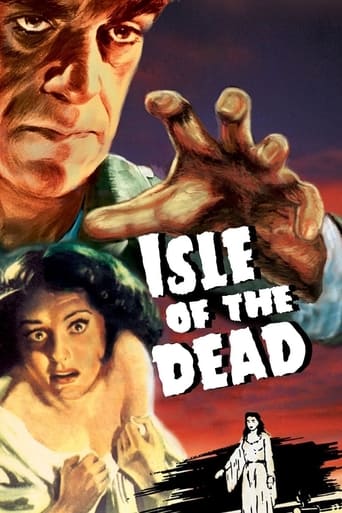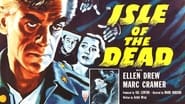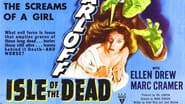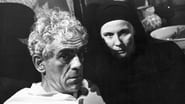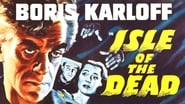Nigel P
Greece, 1912. It must be pretty miserable to hear that a spreading plague necessitates strict confinement to your home; when one of your house-guests is Boris Karloff, that misery takes on a new dimension.'Isle of the Dead' is an RKO horror film, one of a series produced by Val Lewton. Whereas Universal had cornered the monster market, with increasingly exploitative meet-ups between Dracula, Frankenstein's monster and The Wolfman, Lewton specialised in less obvious, more psychological dramas. The horror here is more prevalent in what you don't see. Whereas 1942's 'Cat People' may be the most successful example of this approach, Lewton produced a hugely impressive body of work, among which this production stands tall.When the shadow of Gen. Nikolas Pherides (Karloff) falls across a scene, there is an instant atmosphere of jeopardy, of cruelty, disease and fear. Pherides has a reputation for cruel efficiency, and he brings this to his authority when dealing with the house-full of potential plague carriers, himself amongst their number.The stand-out scene for me is when Katherine Emery as Mrs. Mary St. Aubyn (Katherine Emery) falls into a cataleptic trance, is subsequently buried, and wakes screaming in her casket. We hear her fear and desperate scratching as the camera lingers on her incarcerated wooden tomb, the shadow of blowing branches fallen across it, relentless drip-dripping of the damp stonework upon it. The box splinters and is pushed open as the camera maddeningly pulls away to another scene. Her friend Thea (Ellen Drew) goes in search of the escapee in a perfect studio-set nightmare, her white nightdress blowing in the wind – St. Aubyn has seemingly been driven out of her mind by the experience and parades the house and its surrounding grounds like a vengeful ghost. No-one is safe it seems, especially Pherides, who, for all his sins emerges as a kind of misunderstood anti-hero … Melodramatic it may be, there's no denying the intensity brings with it a true spirit of dread.
Rainey Dawn
Isle of the Dead is a good classic psychological thriller that involves the vorvolaka (basically a Greek vampire).Karloff plays General Pherides, a man who's sole purpose in his life is to uphold the law and keep everyone protected/safe. He has shunned the old Greek Gods in favor of scientific method. As the story continues the general becomes heavily influenced by Madame Kyra and when things get very strange he finds himself once again believing that maybe the old Gods are real.Yes this film is worth watching if you like psychological thrillers. This is not really a vampire film but worth watching if you enjoy vampires since it surrounds the vorvolaka.7.5/10
AaronCapenBanner
Mark Robson directed this Val Lewton production starring Boris Karloff as Gen. Nikolas Pherides. The time is the war of 1912, General Pherides goes to an isolated Greek isle to visit the grave of his wife. His is dismayed to find it disturbed, and discovers that because of the plague, all bodies had to be dug up and burned. In fact, the isle is in quarantine, and now the General(as well as the visiting journalist who was interviewing him) are as well. A superstitious old woman believes that a young woman staying at the Inn with them is responsible. Is she right, or is it something else? Eerie and well acted film has good atmosphere but is awfully slow and lacking in action. Karloff makes the difference though, as he is excellent as usual, and makes up for the faults of pacing and story.
SanteeFats
In this movie Boris Karloff plays a straight role and not a super natural or demented one. He is a very cold general who cuts no slack even to his friends. He goes to the island where his wife has been buried for many years. He finds her tomb and others have been violated and looted. Turns out it is caused by an archaeologist who was paying for artifacts. The plague shows up so everyone is restricted to the island. Boris is determined to keep everyone on the island so he disables the only boat. As things progress and people start to die he gets even more restrictive and even hostile. He eventually beliefs that a young maid/attendant is some kind of Greek evil spirit that is the cause of every thing that is happening. They entomb a woman who is catatonic, she wakes up and manages to break out but the experience has driven her insane. She kills the house keeper and gives Boris a fatal wound but it is not instant. Finally she jumps to her death when cornered by the two remaining healthy men. When everything is over the two young lovers and the archaeologist are the only survivors. Now my question about all this is they state in the film that they know fleas are the cause of the plague. What the heck is it with the winds?
